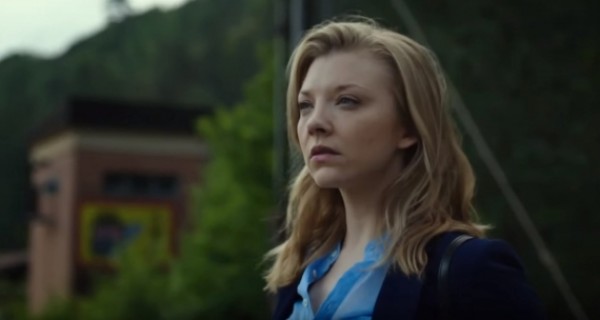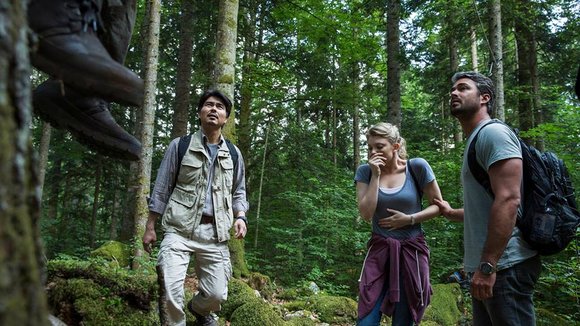
For all you aspiring filmmakers out there, I just have one sound piece of advice: If you have any desire to get your foot in that metaphorical door, then all you have to do is make a horror movie. It's that painless. And I say this for several reasons. Obviously, the horror genre is not really known for its astuteness, and it provides one of the most straightforward blueprints for manufacturing a picture. (Of all the genres that we've become accustomed to over the years, that of the horror variety contains the least complicated model of cinematic shorthand.) And yet, audiences can never seem to fully procure their fix, which, I admit, is quite baffling, especially when one looks at the overall worth of this breed of filmmaking. (The conventions active in this film genre are hardly exemplary; it just goes to show how viewers pine for those guilty pleasures.)
Enter "The Forest," a movie that is unreservedly formulaic and markedly monotonous, and if we were to view it strictly for instructional purposes, it could be seen as a textbook exercise in film direction. (First-time filmmaker Jason Zada, who's patently a proponent of the John Ford philosophy of filmmaking, no doubt did his homework here as he gives us a slew of technically proficient establishing and long shots, sundry scenes with a serviceable demonstration of cinematographic composition, and he even finds the time to add in a "Malick shot.") The better part of the picture is utterly breathtaking—it plainly is—but where it gains in aesthetics it loses in suspense, and, structurally speaking, the latter is the whole shebang. Here's another lesson for the amateur auteur: Sometimes you must first become a drudge, then you can become a director.
The film begins with a series of spasmodic expository flashbacks designed to introduce us to the character of Sara Price (Natalie Dormer) and the situation at hand. Well, here it is—Sara, one half of a twin sibling set, is informed that her sister, Jess, who is also played by Dormer, has disappeared in the Aokigahara Forest or what is more infamously known as Japan's "Suicide Forest." This compels our naive protagonist to fly halfway around the world to begin a rescue mission, as being a twin enables her to rely on clairvoyance, and in this instance, it tells her that this is not a simple case of suicide.
Once there, Sara meets Aiden (Taylor Kinney), a traveling journalist and wily womanizer who helps her gain access to the forest and who stays with her overnight to ensure her safety. (If you are expecting even a broad report of the suspense found in the picture, then I'm afraid you're out of luck; for, there is very little to comment on.) There is a mishmash of supernatural and psychological terror, and the film induces more paranoia than actual fear. This is one of those cases where, I think, if you've seen it once, you've seen it all, and "The Forest" irrefutably suffers not only from a poorly written script, but it is infused with so many contrived plot devices and clichéd tropes that one would have to be completely oblivious to the conventions in use if satisfaction is to become even remotely attainable. (And I hate to ask this, but when are these antediluvian jump scares going to become obsolete? My guess is that they'll remain as long as one paranoiac displays panic-stricken symptoms.)
The worst thing about this movie (beyond the aforementioned blunders and a jagged performance by Dormer—she certainly looks the part of the wholesome and trusting leading heroine, yet her reaction acting is far from adequate) is the fact that it lacks a workable story. Sure, the Aokigahara Forest appears to be the perfect macabre setting for a horror picture, but there is really nothing to be told. (In reality, it is more disheartening than anything else.) It's one of those ideas that sound terrific on paper, but when the product is actually finished, it just becomes another example of insipid storytelling. "The Forest" progresses from hardly frightening to predictable to laughable, all within a ninety-minute time frame, and the climax is nothing short of incompetent. If the latter half of the year is "art season," then January should be known as "nickel-and-dime season."

No comments:
Post a Comment